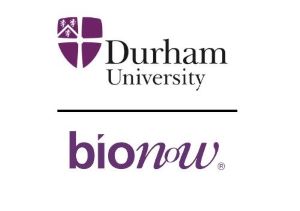Academics and industry come together for Tools for Improving Clinical Diagnostics & Partnering event

Diagnostics experts gathered together at the joint session on 7th December, partnered by Bionow and the University of Durham and hosted at the university’s Calman Learning Centre, to showcase the results of current partnerships and the promise of future collaborations between industry and academia.
With networking, speaker sessions and a keynote address from Bionow CEO Geoff Davison, the event presented opportunities to engage with businesses and academics to develop and improve tools for clinical diagnostics by hearing from academics who built strong industry collaborations.
Kicking off the presentations, Geoff Davison’s keynote speech examined the collaborative life sciences ecosystem in the north of England, with 1,500 businesses employing more than 50,000 highly skilled people and representing 20-25% of the UK life science sector, which provides opportunities to engage with a growing, well-connected and collaborative network, aimed at de-risking business investment and facilitating growth.
Following the opening remarks, academics from the university presented case studies to highlight the importance of partnerships between themselves, other academic institutions and industry, and how this impacted their research.
Professor John Girkin from the Department of Physics was first to present his findings on the advanced photonics for early detection of dental disease, with emphasis on challenges such as the funding gap and the perceptions associated with working in a less “glamorous” field like dentistry, as well as some of the obstacles associated with developing clinical instrumentation, namely lengthy and unsuitable approvals processes and considerations such as manufacturing, sales and field support once the device reaches the market.
The Department of Computer Science’s Dr Noura Al Moubayed and research project business partner Matthew Watson discussed cancer patient risk stratification, with a focus on predicting renal and hepatic function as a cost saving measure, as currently cancer patients undergoing chemotherapy receive 10 blood tests on average per course, with around 90% of these tests clinically not required at a cost to the NHS of about £160 million annually. Following research around the efficacy of using machine learning to predict renal and hepatic function in cancer patients, the intention would then be to Integrate the risk model into clinical pathways.
The final presentation of the day was by Professor Paul Denny from the Department of Biosciences, with his research findings on developing situation appropriate molecular diagnostics, specifically the urgent need for effective and user-friendly point-of-care diagnostic tools for Leishmaniasis, a vector-borne parasitic disease which is difficult and costly to identify using current methods.
Geoff Davison, CEO of Bionow, commented: “It was fantastic to co-present with the University of Durham with an event designed to encourage the sharing of ideas and resources between the life sciences industry and academic institutions with some excellent real world examples of how this is beneficial. I am excited to see future partnerships as a result.”
If you are involved in clinical diagnostics and would like to learn more about potential partnerships, please get in touch.





















